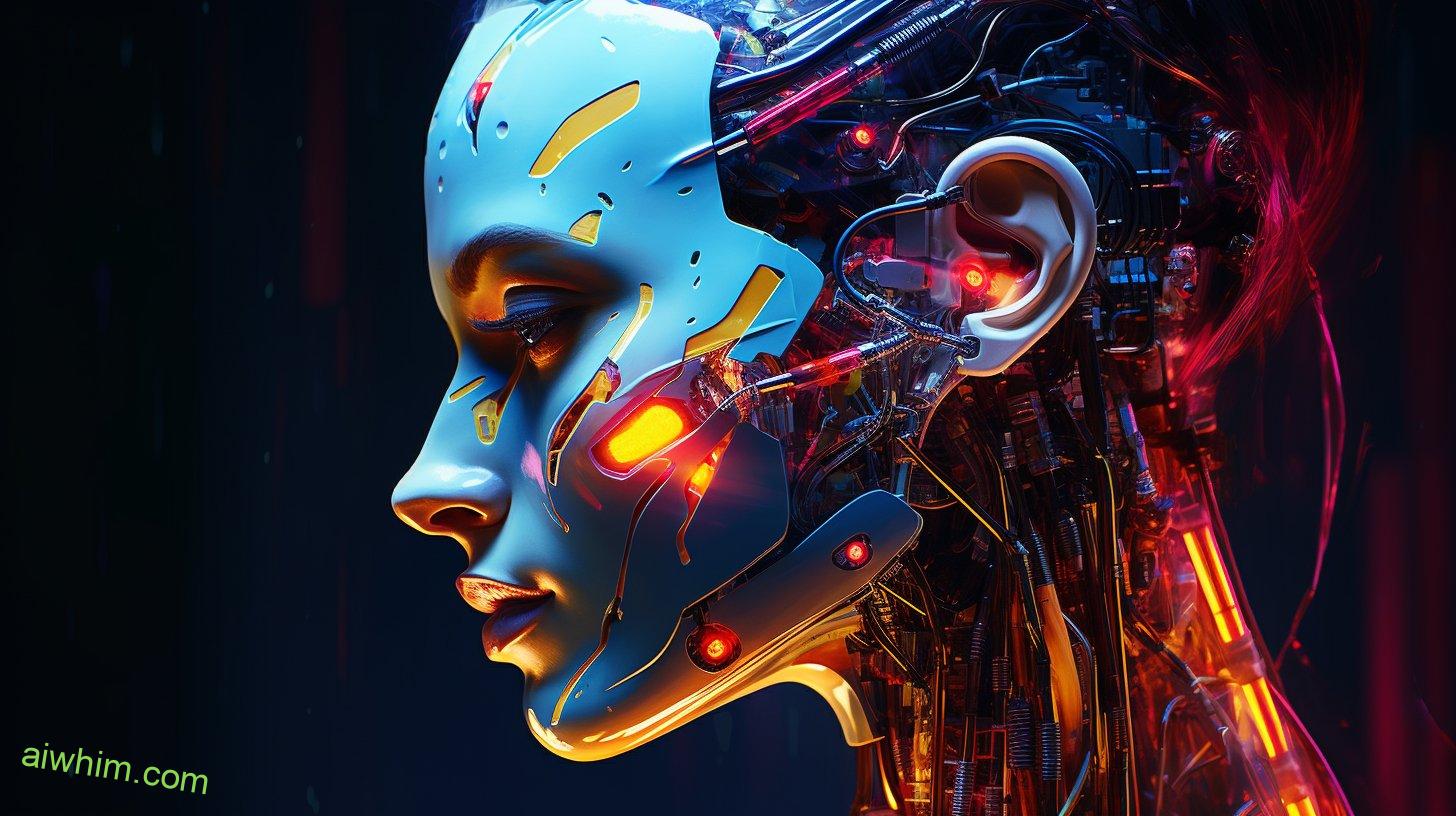Are you an accountant worried that your job is at risk of being replaced by a chatbot or AI? In the ever-changing tech world, it’s understandable to be concerned about how automation and artificial intelligence (AI) will impact your career. AI has been making headlines for years now, but what does this mean for accountants? This article explores whether there’s any risk of replacing accounting jobs with AI and automated chatbots.
The future of work is uncertain; however, having a better understanding of the potential implications can help put some minds at ease. As technology advances, more companies are considering using chatbots as part of their workforce. So, could these bots make human workers obsolete in certain roles – including those within accounting? We’ll take a look at why this may or may not be true.
This article examines the current state of affairs when it comes to automation and its effect on the accountant profession. It looks closely into how AI and robotics might shape accountancy careers in the near future and offers insights into how you can prepare youself for whatever lies ahead. Ready to explore what the possibilities are? Let’s get started!
By the way, read here if you are instead looking for answers to how automation impacts auditing careers or AI in the bookkeeping profession.

Definition Of A Chatbot
A chatbot is a computer program that uses artificial intelligence (AI) to simulate conversation with people. It can answer questions, provide advice, and even handle customer service inquiries. Chatbots are designed to understand context and respond appropriately in real-time conversations.
Chatbots have been around for decades but their capabilities have become more sophisticated as AI technology has progressed. Today’s chatbots use natural language processing (NLP), machine learning (ML), and deep learning algorithms to interpret user input and respond accordingly. This allows them to offer customized answers based on the individual’s needs or preferences. They can also be programmed to detect certain keywords or phrases so they can quickly identify relevant information about a person’s query.
Chatbot technology has enabled businesses to automate many customer service tasks such as answering FAQs, routing customers to the right department, taking orders, scheduling appointments, providing product recommendations, etc. As this technology continues to advance, it could potentially replace some of the traditional job roles that humans currently fill within an organization—including accounting roles.
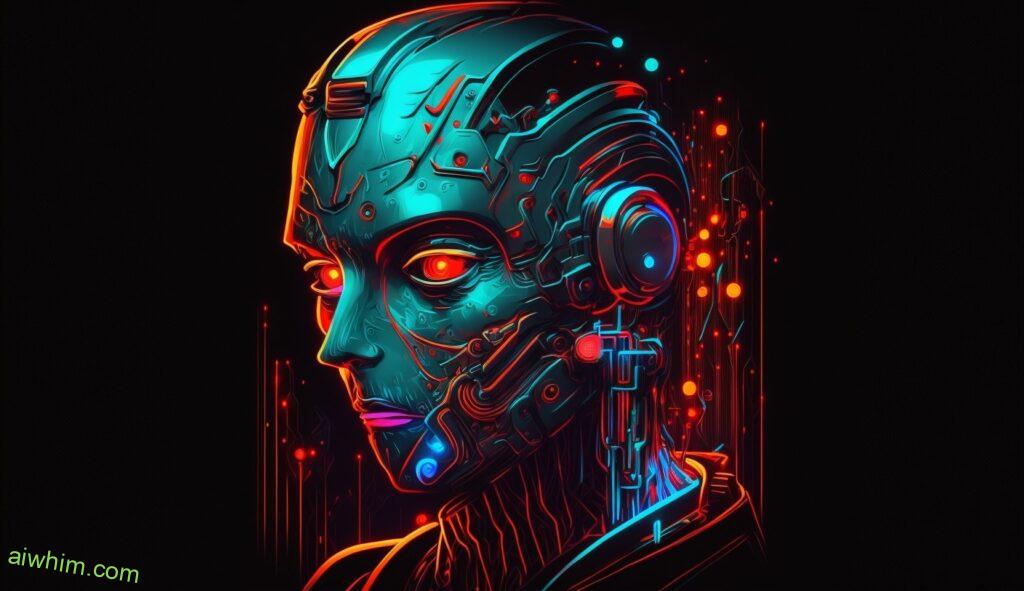
Automation Of Accounting Tasks
As technology advances, many labor sectors are turning to automation as a way to increase efficiency and productivity. Accounting is no different; AI applications are being used more frequently for accounting tasks such as bookkeeping and taxes. Automation can help streamline processes, reduce costs, and provide greater accuracy in the work that’s done.
Automating certain aspects of accounting can be beneficial for both businesses and accountants alike. For businesses, they’ll benefit from increased accuracy, reduced overhead costs, and faster turnaround times on their financial reports. Accountants also stand to benefit since they won’t have to spend so much time doing mundane or repetitive tasks. Instead, they can focus on higher-value activities like providing strategic advice or helping clients with complex tax issues.
There’s no denying that some jobs will become automated over time due to advancements in technology. However, it doesn’t mean that all accountant roles are at risk of being replaced by AI applications anytime soon. In fact, there may even be opportunities for growth if accountants embrace automation and use it to their advantage – freeing up more time for them to pursue new areas of expertise or specialize further in existing ones.

Advantages Of Chatbots In Accounting
The advent of chatbots has revolutionized the accounting industry, offering businesses a myriad of advantages. For starters, they bring an element of automation to the table. Automated accounting allows for tasks like data entry and invoice processing to be completed faster than ever before with minimal human interference. This leaves accountants free to focus on more complex financial analysis tasks that require their expertise.
Chatbot advantages also include better accuracy in tracking financial transactions and reducing errors. By removing manual processes from the equation, chatbots can identify discrepancies quickly and accurately – all without any risk of human error or bias coming into play. Moreover, by leveraging AI-powered analytics, these bots are able to provide real-time insights into key areas such as budgeting, cash flow management, customer segmentation and so much more! The end result is enhanced efficiency and improved decision making for business owners worldwide.

Challenges Of Implementing Chatbots
Although chatbots present many advantages for accountants, there are also challenges associated with the implementation of such technology. With automation becoming increasingly commonplace, it is essential to consider how these tools will impact both the job market and customer experience. Here are 4 key challenges when it comes to AI adoption:
- Difficulty in programming complex tasks – Programming a chatbot can take considerable time and effort, as they must be able to complete more sophisticated activities than simply responding to simple queries. This may require specialized knowledge that not all accounting firms have access to.
- Potential privacy issues – Due to the nature of their work, accountants often handle sensitive information which could be at risk of unauthorized access if a chatbot were used incorrectly or maliciously. It is important that appropriate security measures are taken so that customers’ data remains safe and secure.
- Expense – There is an initial cost involved in implementing a chatbot into your business operations which could prove too costly for some companies. Additionally, any updates or changes required down the line would need additional investments as well.
- Human interaction still needed – Despite its advanced capabilities, a chatbot cannot provide the same level of personal connection as human-to-human communication does. Accountants should ensure clients remain engaged throughout their interactions by providing timely feedback and support where necessary.
Given these potential obstacles, businesses must weigh up whether implementing a chatbot is worth it before making any decisions about incorporating this type of technology into their operations. Ultimately, though automated solutions can offer significant benefits when used correctly, careful consideration needs to be given when weighing up the pros and cons of investing in them.

Impact On Jobs And Job Security
The fear of job automation looms like a dark cloud over the horizon for many individuals in various professions. The possibility of an accountant’s job being replaced by a chatbot is no exception to this worrying trend. Automated technology has the potential to reduce or even eliminate jobs that do not require creative thinking and problem-solving skills, such as basic accountancy duties. This can be especially concerning for those wishing to pursue a career in accounting as they need to consider their future job security before committing themselves fully.
Fortunately, there are still many areas within accountancy where human expertise is valued and needed – something which automated systems cannot match. Accounting requires more than just number crunching; it requires analysis and interpretation, two things computers simply cannot do yet. Jobs involving complex decisions must also rely on professional judgement and ethical considerations, making them impossible to automate due to their subjective nature. To combat uncertainty surrounding job automation, professionals should focus on developing specialized skillsets that set them apart from the competition – thereby guaranteeing their longterm employment prospects.

How To Prepare For Automation
As the previous section pointed out, automation and AI are becoming increasingly prominent in our lives. Unfortunately, this means that some jobs may be at risk of being replaced by machines. This is especially true for accountants since accounting tasks can often be automated with software or a chatbot. To ensure job security, it’s important to start preparing now for potential automation and AI advancements.
The best way to prepare for modern changes like these is to stay up-to-date on the latest developments in your field. Doing research about automation trends will help you understand how other companies are utilizing new technologies and what could potentially replace certain aspects of your job. Additionally, there are many courses available online where you can learn more about topics such as artificial intelligence, robotics, machine learning, and data analytics which all relate to accounting automation. Taking advantage of these resources will give you an edge when it comes time to apply for a job or make decisions about career advancement.
It’s also wise to think ahead and consider ways that you can add value beyond just performing basic accounting duties—for example improving customer service experiences with digital solutions or introducing innovative analysis tools into the equation. By doing so, you’ll remain competitive no matter how much technology progresses in your industry over time. With the right knowledge and strategies in place, you can rest assured knowing that any disruption from automation won’t affect your position within a company negatively.
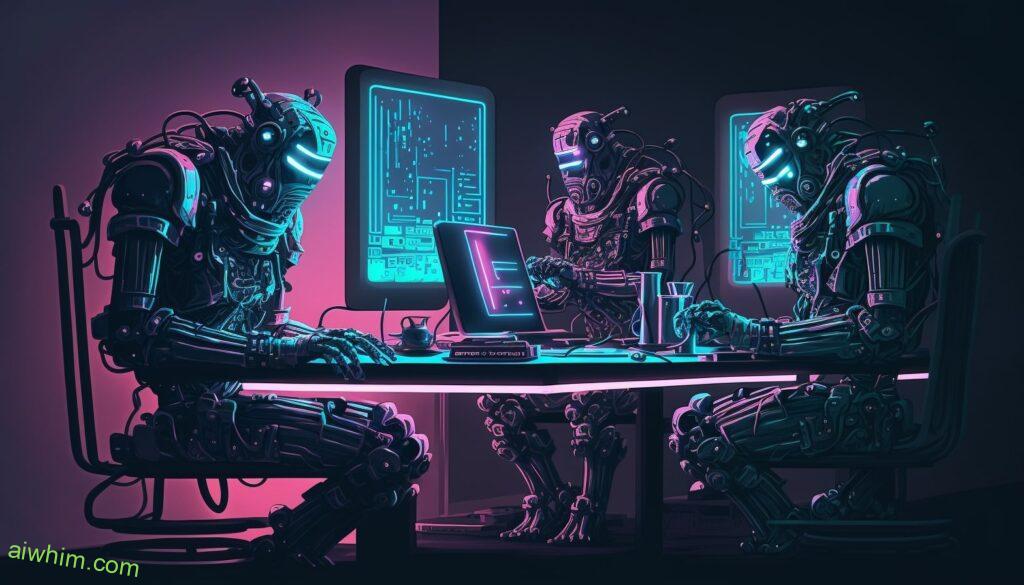
What Is Artificial Intelligence (AI)
Artificial intelligence (AI) is an increasingly influential technology that many consider to be a game-changer. AI can be thought of as the umbrella term for machine learning, deep learning and other related algorithms used for automation and prediction. It’s essentially computer software that performs functions normally requiring human intellect – such as decision making, pattern recognition and natural language processing. AI has been around since the 1950s but in recent years it’s become more sophisticated, with advanced capabilities like facial recognition, speech recognition and automatic navigation.
Machine learning is based on mathematical models trained by data sets which are fed into computers so they can recognize patterns and make decisions accordingly. Deep learning utilizes neural networks – layers of connected nodes or neurons – which enable machines to process large amounts of information at once. This helps them learn from their environment much faster than traditional methods do. Together these two forms of AI have opened up whole new possibilities in fields ranging from healthcare to finance, revolutionizing how we interact with our world. So while there may be some risk that certain accountant jobs could eventually be replaced by chatbots powered by AI, this technology also offers exciting opportunities to create entirely new roles within organizations across all industries.

AI In Accounting Industry
The potential of AI in the accounting industry is revolutionary. It’s almost as if someone put a rocket booster on the back of an accountant and took them to dizzying new heights! With machine learning, automated accounts can be created faster than ever before – and with more accuracy. In fact, AI has already transformed parts of the accounting industry: from invoice processing automation to tax preparation.
But what does this mean for accountants? Is there a risk their job will be replaced by a chatbot or other robotic software? The answer isn’t simple; it depends on how accountants choose to use this innovative technology. Used correctly, AI offers powerful tools that allow accountants to work smarter and become even more effective at their job. Accountants who embrace these changes now have access to data-driven insights that help them make better decisions, quickly identify trends across multiple datasets, and provide proactive advice to clients.
AI is here to stay and its impact on the accounting industry should not be underestimated – but neither should its ability to revolutionize how accountants work today. By leveraging AI’s power and utilizing it in creative ways, savvy accountants can gain tremendous advantages over their competitors while providing higher quality services for their clients.

Risks Associated With AI-Powered Accounting Solutions
When it comes to accounting-AI, is the automation of key tasks within a business an opportunity or a risk? It’s a tricky question that depends on context. AI can bring incredible efficiency and cost savings, but it also carries its own set of risks and challenges. For example, automated accounting solutions tend to be complex and may require significant investment in technology and training to use effectively. Additionally, there are privacy concerns that must be addressed when using such powerful tools.
The introduction of AI into accountancy creates new opportunities for fraudsters as well. Automated systems provide quick access to financial data which could be vulnerable if not properly secured. This means companies need to have robust security measures in place before adopting any AI-powered solution. Moreover, it’s important to remember that while automated accounting solutions can streamline processes, they still rely heavily on humans for accuracy and oversight – meaning human judgement will remain essential even with advanced technologies being used.
Accounting has traditionally been seen as a secure role but now presents some unique challenges due to the emergence of these sophisticated tools. Companies should weigh up all the potential benefits against any associated risks before investing in an AI-powered system – only then will your accountant job (and career) truly become safe from replacement by chatbots!

Human Vs Machine Interactions
It’s an irony of our times that the very machines we created to make life easier have ended up replacing us. Machines are taking over some of the most mundane and repetitive tasks, a trend which is only set to increase in the years ahead. This has caused concern for many industries, including accountancy – could robots soon take away jobs from humans?
The answer is yes, but with caveats: advances in technology are allowing automation to replace certain accounting roles and processes. But this doesn’t mean human talent isn’t needed anymore; it means that different skillsets will come into play as part of human-machine interactions. Machine learning algorithms can automate parts of the process – such as data entry and number crunching – while leaving creative problem solving, strategic analysis and other higher order activities to human beings. As software programmes become more adept at carrying out these procedures, they may even help free up time for accountants to focus on more complex tasks outside their daily routines.
Accounting automation isn’t going anywhere anytime soon; however it shouldn’t be seen as a threat but rather an opportunity for professionals in the field. It provides increased efficiency by streamlining routine operations so accountants can use their expertise where it really matters. Ultimately, this makes them better equipped to handle future challenges and opportunities within the profession.

Cost-Benefit Analysis
Transition: With the advent of automated technology, it is inevitable to ask whether accountants’ jobs are at risk.
As with any new development in technology, there must be a cost-benefit analysis when deciding on the implementation of new tools. For instance, chatbots offer numerous advantages over traditional human-human interactions; they can provide 24/7 customer service and do not require breaks or overtime pay. Furthermore, their automated responses often result in faster turnaround times for customers’ queries. These benefits should not be underestimated, as businesses prioritize efficiency and cost savings above all else.
However, this does not mean that humans are completely out of the picture; although some tasks may become redundant due to automation, many still require human expertise and judgement. In addition, most businesses recognize that customer satisfaction and loyalty depend upon personalized relationships between people rather than machines. Thus, while chatbots have undeniable advantages over manual labour such as accounting services, they cannot replace humans entirely because certain elements of human interaction remain irreplaceable.
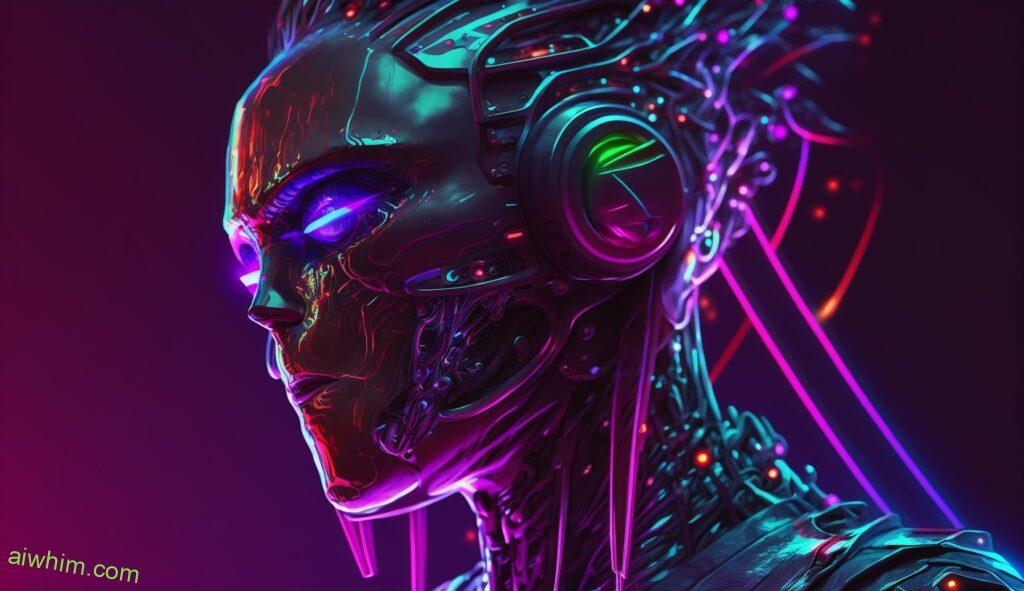
Training And Education Necessary For The Shift
Are we really close to a world where accountants are replaced by chatbots? With the onset of artificial intelligence (AI) and automation, it is possible that machines can replace many human jobs. That being said, there may still be a way for accounting professionals to stay relevant in this ever-changing job market: training and education.
For those who want to keep up with the advancements in AI, it’s essential to get educated on the technology and how it affects the industry. Taking courses about AI or attending seminars related to automation knowledge can help aspiring accountants understand their position in an increasingly automated economy. It’s also important to take classes related to accounting education so you can stay ahead of any potential changes in regulations or laws that could impact your work. Additionally, having certifications from professional associations such as CPA will show employers that you’re capable of handling complex tasks associated with the field.
By taking proactive steps towards understanding these technologies and staying informed about them through formal learning opportunities, current and future accounting professionals have an opportunity to remain competitive while facing less risk of replacement by robots or chatbots. In other words, if you embrace change rather than resist it – your accountant job might just be safe!

Regulations Governing The Use Of Automated Technology
The advancement of automated technology has raised concerns about the safety and security of jobs. With the introduction of chatbots, many worry that their accountant job may be replaced by a computer-generated program. It is important to note that there are regulations in place governing the use of this type of technology.
These laws dictate how automated technologies can be used in certain areas and ensure they comply with ethical standards. They help protect employees from unfair treatment while also protecting consumers from exploitation. For example, AI-driven programs must adhere to privacy laws or risk facing severe penalties for breaking them. Additionally, any data collected should not be shared without consent or maliciously manipulated against someone’s will.
It is essential to understand these rules when considering using an automated system for your business needs. Doing so ensures both parties are protected and upholds a high level of trust between users and companies alike. By taking the time to research current regulations governing the use of automated technology, businesses can make informed decisions on how best to utilize such tools safely and responsibly.

Ethics Around The Use Of Automated Technology In Accounting
The previous section discussed the regulations governing the use of automated technology in accounting. Continuing on this topic, we will now consider the ethical implications of using such technology.
When it comes to ai ethics and automated ethics, there are many issues that must be taken into account when deciding whether or not to incorporate automation into an accounting system. The following points should be considered before making any decision:
- The potential impact of automation on employees’ job security;
- The effect of automation on accuracy and reliability of data;
- How privacy is impacted by introducing robotic processes;
- Ethical considerations related to ownership over data;
- Potential concerns around bias resulting from machine learning algorithms.
These factors need to be carefully assessed prior to integrating any kind of new technology into an accounting system. This can help ensure that no unethical decisions are made with regard to how financial information is handled and shared. In addition, businesses should also make sure that their practices comply with applicable laws and regulations, including those related to protecting employee rights and maintaining customer privacy. By doing so, companies can ensure they maintain a good reputation as well as protect themselves from costly legal liabilities down the line.
Accounting ethics go beyond simply ensuring compliance with relevant laws – it is about providing accountability for customers’ financial transactions while still respecting their individual wants, needs, and desires for freedom. As such, it’s important for companies transitioning to automated systems to remember why they do what they do – namely, helping people better manage their finances through reliable software solutions that respect user privacy at all times. With these ethical guidelines in mind, companies may find success in implementing automated technology without compromising their values or damaging trust between them and their clients.

The Future Of Accountants In An Automated World
The future of accountants in an automated world is uncertain. Technological advancements are making it more and more feasible for machines to take over the jobs traditionally held by people, including accounting. This leaves us with a question: Will there still be a place for human accountants in the future?
It’s easy to assume that automation will replace the role of accountants entirely. But this isn’t necessarily true. It’s important to remember that though technology has come a long way, humans still have unique skillsets that bots can’t replicate – things like problem solving and creativity. Accountants may need to adapt and learn new ways of doing things in order to stay relevant, but ultimately they’re still needed in the workplace moving forward.
Accounting requires both technical knowledge and interpersonal skills, so while chatbots may help speed up certain processes they won’t completely overtake accounting roles anytime soon. In fact, many believe that automation will actually create additional opportunities for experienced professionals who can use their expertise to leverage new technologies. The key takeaway here is that despite some changes on the horizon, accountants should feel confident about their career prospects in the coming years.

Conclusion
In conclusion, chatbot technology is increasingly being used in the accounting industry to automate certain tasks. While AI and chatbots differ in their complexity, both technologies have the potential to replace existing roles.
Accountants should be aware of this shift and consider how they can prepare for automation. This could include getting comfortable with new software programs or taking online courses related to emerging technologies such as artificial intelligence or machine learning. Additionally, it’s important to pay attention to regulations surrounding automated technology so you remain compliant when working with clients.
Overall, while there is a risk of accountants’ roles becoming replaced by chatbots, embracing automation now will help ensure that your skills stay relevant over time. I encourage all accountants to think about how they can future proof themselves against changes brought about by the emergence of these technologies.
Frequently Asked Questions (FAQ)
What Are The Differences Between AI And Chatbot Technology?
AI is typically much broader in scope than its counterpart – chatbot technology. While both technologies can automate tedious tasks like customer service inquiries or accounting processes, AI is capable of understanding context and making decisions on its own while chatbots rely solely on pre-programmed responses. In addition, AI systems can be trained to recognize patterns and continuously improve their accuracy over time which allows them to learn from their experiences in order to make better decisions. Chatbots, however, require frequent updates in order for them to remain effective at providing users with accurate answers and solutions.
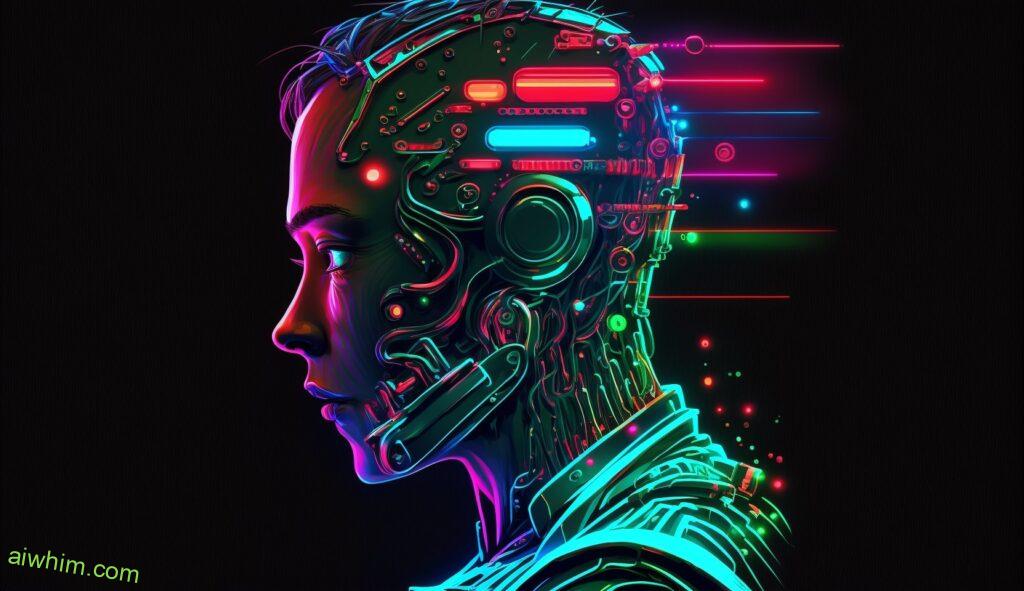
What Are The Regulations In Using Automated Technology?
When dealing with advanced automated technology such as chatbots, there are certain regulations that must be followed. Accounting regulations, as well as laws regulating the use of chatbot and other forms of automated technology, exist to protect customers and businesses alike from any harm or misuse associated with these technologies. It is essential for companies to keep up-to-date on all relevant accounting and chatbot regulations in order to ensure compliance.
The implications of using a chatbot in an accountant’s job could have a huge impact on their practice if not properly regulated. Companies should strive to adhere to appropriate guidelines when utilizing AI-enabled technologies like chatbots so that they can continue providing effective services without compromising customer safety or privacy. Additionally, it is important for organizations to stay informed about changes in the industry and corresponding legal requirements that may affect the way they utilize automation tools.
By taking into account existing regulations related to automated technology, companies can gain greater control over how they conduct business while keeping customers safe at the same time. By following necessary protocols, firms can maximize their potential efficiency while ensuring that their operations remain compliant with necessary rules and regulations. Furthermore, understanding applicable legal requirements will help organizations make better decisions regarding which processes require manual versus automated assistance.

How Can Accountants Prepare For The Shift To Automation?
As automation and artificial intelligence (AI) is increasingly being used in the accounting industry, accountants must take steps to prepare for this shift. This includes updating their skillset through training, understanding regulatory compliance needs, and learning how to maximize AI capabilities.
In the digital age of automation, it’s important for teams to understand which regulations need to be followed when using automated technology. Accountants can stay ahead of the curve by taking courses on best practices within their field as well as staying up-to-date with changing laws. Additionally, they should consider leveraging tools that offer insights into data analysis so they can make better decisions quickly and efficiently.
Accountants also need to develop a deeper knowledge of AI capabilities in order to remain competitive in the marketplace. They should look into ways to use machine learning algorithms or natural language processing to automate mundane tasks such as bookkeeping or data entry while freeing up more time for higher value work. By investing in skill development and keeping an eye on current trends, accountants have an opportunity to successfully transition into this new era of automation.

Ethical Implications Of Automated Technology In Accounting?
Like a race car driver careening around a sharp turn, the advent of automated technology in the accounting industry has created an ethical dilemma that needs to be addressed. As this new technology increasingly takes over more aspects of accounting and financial services, it is important to consider what implications this shift may have for both businesses and individuals.
The use of automated technology brings many benefits to the accounting world, such as increased accuracy and efficiency; however, there are some potential risks associated with its implementation. For example, human oversight can become diminished when relying on computer algorithms or bots to process large amounts of data. Additionally, automation could lead to job losses if certain roles become obsolete due to advances in artificial intelligence (AI). Therefore, it is essential that accountants understand the ethical implications of using automated technology before transitioning their workflows over from manual processes.
Accounting professionals must ensure that any AI-driven solutions they implement comply with existing regulations and laws. They should also take into consideration how these technologies might impact people’s privacy rights and determine whether those affected have been adequately informed about the changes being made. In order for society to fully benefit from technological advancements in the field of accounting, stakeholders need assurance that their personal information remains secure and protected at all times. Ultimately, by taking appropriate steps now, the accountancy industry can create a future where everyone enjoys greater freedom without sacrificing ethical standards within the profession.
Author: Ole Paulson
Author Bio: I’m Ole and on this website, I share everything there is to know about Artificial Intelligence, and useful tips for using AI to our advantage. I have a background in data science and research and have been following the AI-space for years. You can read more about me in the “About” page.




